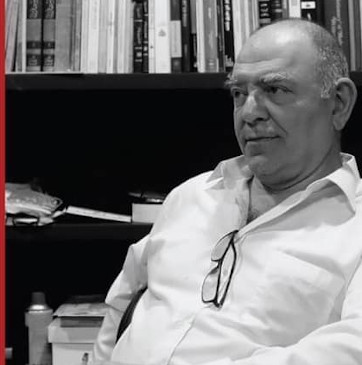Killing of human rights defender Lokman Slim
On 4 February 2021, the Lebanese police found human rights defender Lokman Slim shot dead inside his car in Nabatieh, southern Lebanon. A medical examination revealed that the human rights defender had been shot four times in the head and once in the back.
 Lokman Slim was a Lebanese human rights defender who worked on documenting war crimes in Lebanon and Syria and on archiving material needed for the upholding of the Lebanese people’s right to memory, truth, justice and redress. Lokman Slim co-directed two films, one on the Sabra and Shatila Massacre and another on torture in Syrian prisons, with his wife, the film maker and activist Monika Borgman. The human rights defender established the UMAM Documentation and Research Center in his family home.
Lokman Slim was a Lebanese human rights defender who worked on documenting war crimes in Lebanon and Syria and on archiving material needed for the upholding of the Lebanese people’s right to memory, truth, justice and redress. Lokman Slim co-directed two films, one on the Sabra and Shatila Massacre and another on torture in Syrian prisons, with his wife, the film maker and activist Monika Borgman. The human rights defender established the UMAM Documentation and Research Center in his family home.
On 4 February 2021, the Lebanese police found human rights defender Lokman Slim shot dead inside his car in Nabatieh, southern Lebanon. A medical examination revealed that the human rights defender had been shot four times in the head and once in the back.
Download the urgent appeal here.
Lokman Slim was a Lebanese human rights defender who worked on documenting war crimes in Lebanon and Syria and on archiving material needed for the upholding of the Lebanese people’s right to memory, truth, justice and redress. Lokman Slim co-directed two films, one on the Sabra and Shatila Massacre and another on torture in Syrian prisons, with his wife, the film maker and activist Monika Borgman. The human rights defender established the UMAM Documentation and Research Center in his family home. Since 2005, the centre has been collecting information and establishing a database for all those killed or disappeared during the fifteen-year Lebanese civil war, and is placed among the major documentation and knowledge resource institutions in Lebanon. Lokman Slim conducted valuable research on missing persons, the forcibly disappeared and refugees, and on the politicisation and undermining of judicial performance in the major crimes that took place in Lebanon in the past three decades.
Lokman Slim was also a defender of Syrian refugees’ rights in Lebanon, notably through a project designed to historically contextualise the arrival of Syrian refugees in Lebanon in relation to earlier Syrian migration, and to show how they have shaped present day Lebanon via documentation, op eds, workshops and artistic exhibitions. Lokman Slim conducted his human rights work with a strong element of political analysis and a willingness to call out the political reasons for human rights violations. Lokman Slim promoted citizen involvement in the political process and criticised the sectarian system of the country.
On 4 February 2021, the Lebanese police found the body of human rights defender Lokman Slim in his car in Nabatieh city southern Lebanon. The human rights defender went missing on the evening of 3 February after leaving his friend’s house near the village of Niha. The forensic pathologist reported that Lokman Slim received five shots, four to his head and one to his back.
The human rights defender was frequently harassed and received several threats regarding his human rights work and his criticism of the human rights violations committed by militant groups in Lebanon. In December 2019, posters were glued to the door of Lokman Slim’s home, accusing him of being a traitor because of his work in the defence of human rights. In December 2019, Lokman Slim issued a statement declaring that both he and his wife had been subjected to threats, attacks and intimidation by the Hezbollah political party and armed group. The human rights defender was driven to make this statement after a group had entered the perimeter of his home and sprayed death threats on the walls.
Front Line Defenders condemns the killing of human rights defender Lokman Slim as it believes it is directly linked to his peaceful and legitimate work in the defence of human rights in Lebanon. Furthermore, Front Line Defenders is deeply concerned about the wider crackdown against human rights defenders in the country. Lokman Slim’s killing highlights that the space for dissent is closing rapidly in Lebanon. Over the past year or so, the political leadership’s tolerance for criticism has been decreasing as more and more journalists and critics have been taken into custody by the authorities.
